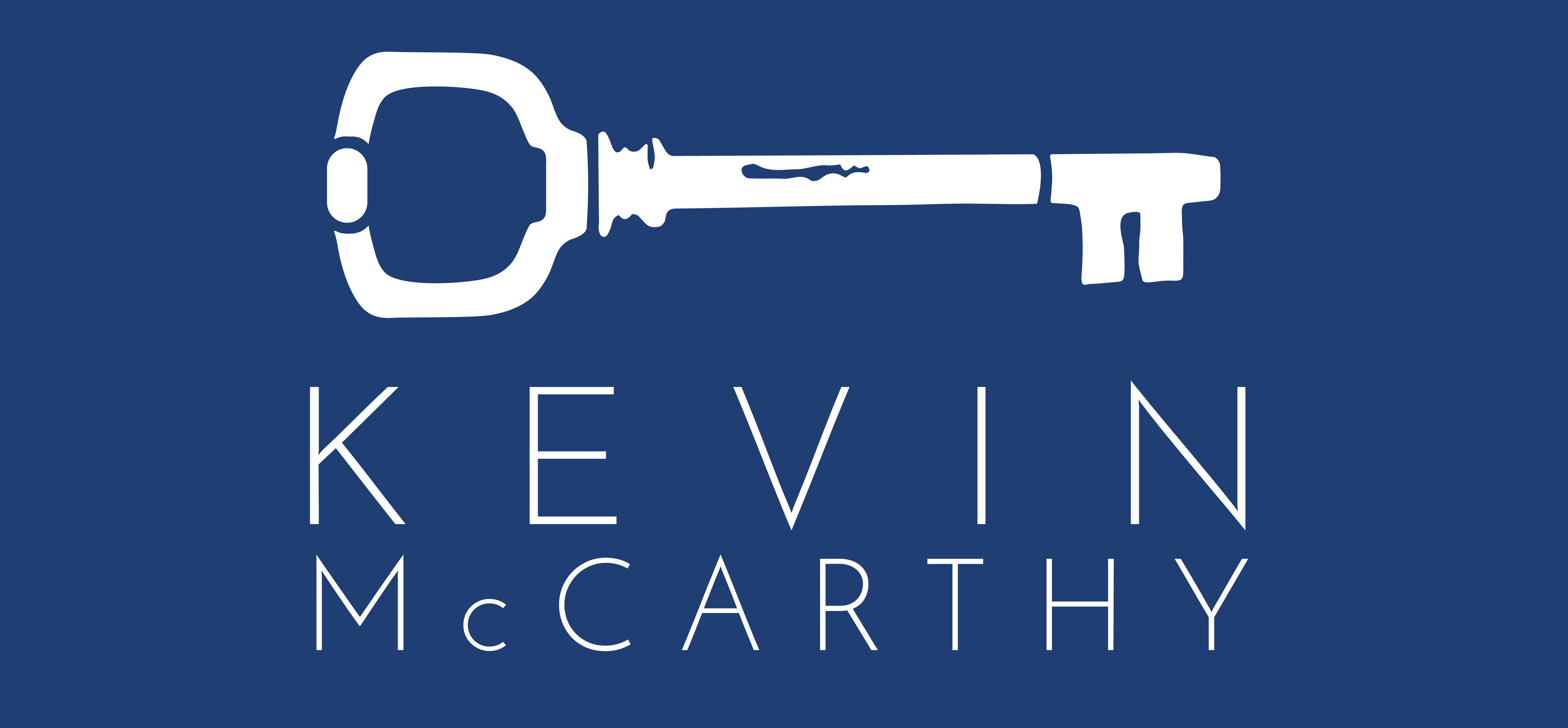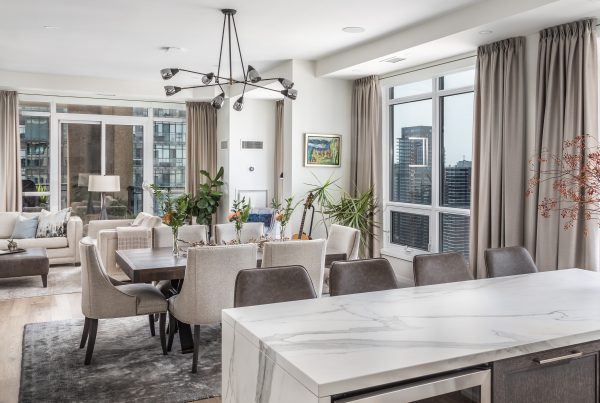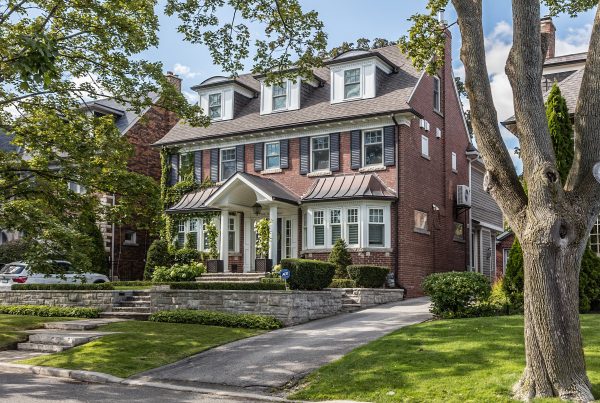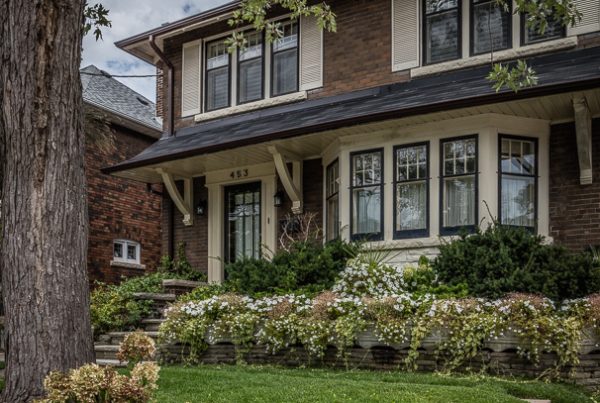Step 1 – Understanding Your Needs
Getting to know you and your family
Buying or selling a home is a significant milestone in anyone’s life. It’s not just a financial investment; it’s a place where memories are made, families grow, and a sense of belonging is established. That’s why all of Kevin’s relationships begin with an open and comprehensive discussion about you, your lifestyle, and your needs.
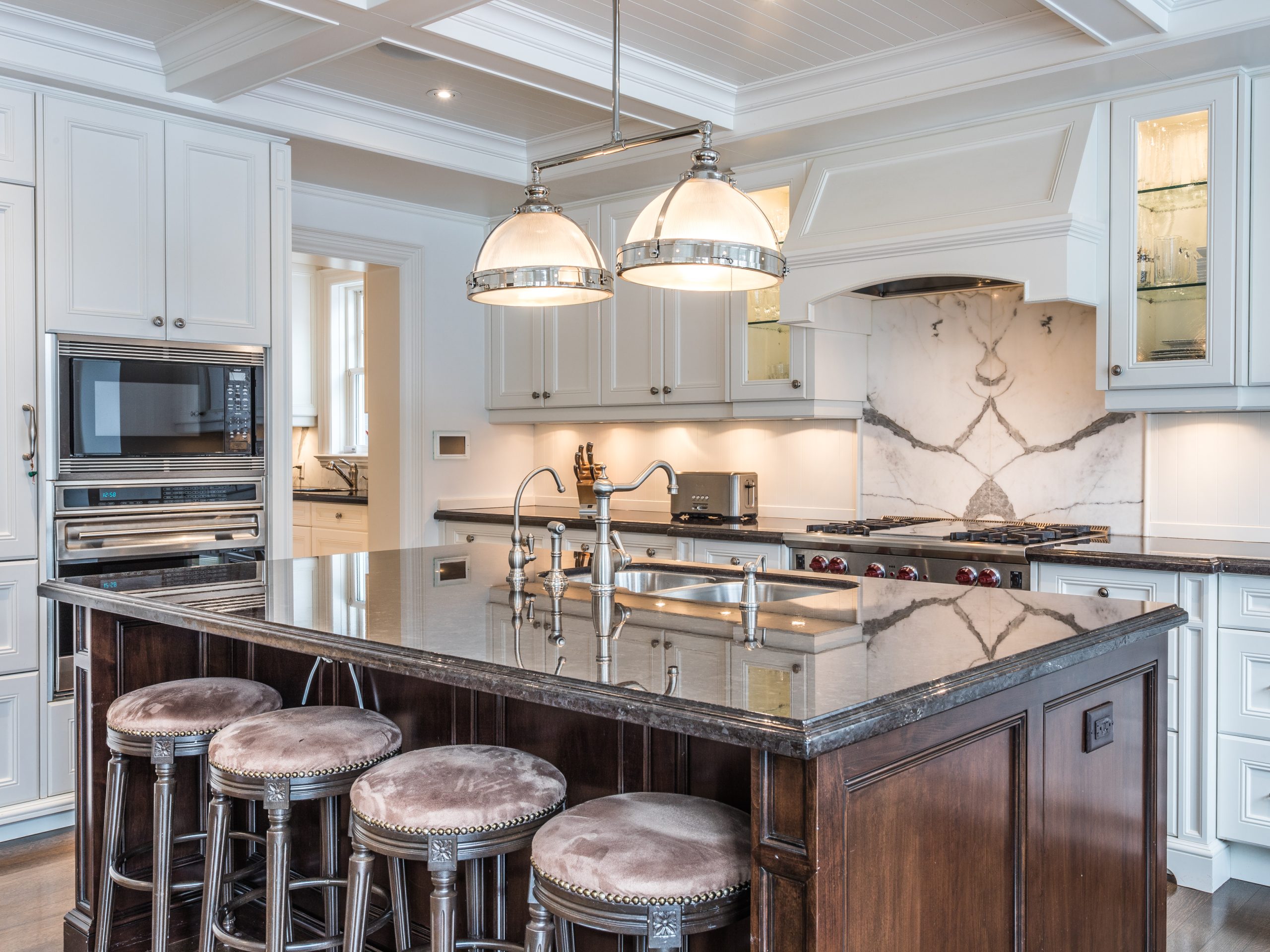
The Essentials
Considerations about lifestyle and community
At the heart of every successful real estate transaction is a deep and thorough understanding of the needs of the client. Those needs begin with the most fundamental questions about your home search; where are you considering living, what lifestyle are you looking to enable on the day-to-day with your location, what do you need your house to do.
Lifestyle Considerations
As your real estate professional, I will assist you in considering various lifestyle factors when searching for a home, ensuring that your overall satisfaction and well-being are prioritized. We will carefully evaluate the proximity to amenities, schools, and work, as these factors directly influence your daily routines and the ease with which you can access essential services. I’ll help you use your desired lifestyle as a guiding force, ensuring that your home search aligns with how you want to feel within your community on a day-to-day basis. Together, we’ll start your home buying journey by carefully assessing your current lifestyle, determining whether this move is a continuation of that lifestyle or a departure to a new one. With my support and guidance, you’ll be well-equipped to make informed decisions that truly reflect your needs and preferences.
Community Considerations
When choosing a community to live in, it is important to take a holistic approach, considering various factors that contribute to a high quality of life. Assessing the noise level, zoning laws, and building codes can help determine the type of environment and level of privacy you desire. Investigate safety and crime rates, and proximity to public transportation and major highways to ensure the area meets your expectations and offers a sense of security. The quality of local schools, availability of medical facilities, and presence of parks and recreational facilities should also be taken into account, as they can significantly impact your daily experiences and future prospects. Furthermore, local shopping and dining options, community events, and access to public services such as police and fire departments can enhance your overall satisfaction with the area. Environmental factors like proximity to bodies of water and parks, as well as the diversity of cultural events and community groups, can create a vibrant and engaging atmosphere. It’s also important to consider the potential implications of local zoning laws and future development plans, as they can impact property values and the character of the community. Lastly, be mindful of local taxes and fees, including property taxes.
Family Considerations
Family considerations play a crucial role when searching for a home, as they directly impact the well-being and happiness of each family member. The size and layout of the property should accommodate your family’s current and future needs, allowing for growth and flexibility. Proximity to quality schools and educational institutions is essential, as it can influence your children’s development and educational opportunities. Safe neighborhoods with low crime rates contribute to a secure environment for your family, while access to parks, recreational facilities, and family-friendly activities can foster bonding and create a sense of community.
Consider the availability of medical facilities and hospitals, as quick access to healthcare services is vital, particularly for families with young children or elderly members. Additionally, evaluate the area’s public transportation options, as they can provide a cost-effective and convenient solution for family outings and commuting. A diverse and inclusive community can expose your family to different cultures and perspectives, enriching your children’s upbringing. Lastly, take into account the proximity to extended family and friends, as they can offer essential emotional support and strengthen familial connections.
Finance Considerations
Financial considerations play a significant role in the home search process, as they encompass both present and future aspects that can affect your overall financial stability. In the present, it is crucial to establish a realistic budget, explore financing options, and secure mortgage pre-approval. Be mindful of property taxes, and closing costs, as these can substantially impact your initial investment. Additionally, consider your down payment, interest rates, credit score, and debt-to-income ratio, as they influence loan terms and monthly payments. Don’t forget to account for insurance costs, utility expenses, and maintenance costs, as well as any immediate repairs or renovations that may be necessary.
Looking ahead, future considerations should also be factored into your decision-making process. Assess the potential resale value of the property and its appreciation potential to gauge the long-term financial benefits of your investment. Keep an eye on property value trends and the impact of the property’s location, as these elements can influence future growth and desirability. By thoroughly examining these financial aspects, you can make a well-informed decision that aligns with both your current and long-term financial goals, ensuring a sound and prosperous investment in your new home.
The Core Needs of Your Home
Number of Bedrooms, Square Footage, and all the essentials.
The initial phase of the home search process is dedicated to refining the fundamental aspects of your dream home that are non-negotiables and make up the core features of your home. By starting with the essentials that truly matter to you, such as the size, style, and layout of the house, we create a solid foundation for a successful real estate experience.
Core Home Needs
When searching for a home, it is important to evaluate the core features that cater to your specific needs and preferences. Consider the number of bedrooms and bathrooms, the size of each room, and the ceiling height to ensure the space accommodates your family and lifestyle. Assess the layout of common areas, such as the living room, dining room, dedicated home offices, and kitchen, and decide whether an open-concept or traditional floor plan best suits your needs. The number and placement of windows, amount of natural light, and orientation of the home can greatly impact the overall ambiance and energy efficiency.
Living room and family room layouts should be evaluated for comfort and practicality, with features such as fireplaces and entertainment options like audio/visual systems and cable and internet availability playing a role in your leisure time.
Laundry facilities, washer and dryer hookups, energy efficiency, and green features are vital for both convenience and environmental responsibility.
Style Considerations
The style of a home is influenced by a variety of factors that contribute to its overall aesthetic, character, and appeal. Architectural design plays a significant role, encompassing elements such as building materials, rooflines, window shapes, and exterior finishes, which collectively create a distinct visual identity. The interior design, including wall colors, flooring types, ceiling height, and lighting fixtures, can further define the style of the home and establish a cohesive atmosphere. The layout and floorplan also impact the home’s style, with open-concept designs lending themselves to a more contemporary feel, while traditional floorplans can evoke a sense of warmth and intimacy.
The choice of furnishings, window treatments, and decorative elements can either complement or contrast with the architectural style, allowing for a customized expression of personal taste and preferences. Additionally, the surrounding neighborhood and regional influences can play a role in shaping the style of a home, as local building traditions, climate considerations, and cultural factors often inform design choices. Ultimately, the style of a home is a complex interplay of architectural, interior, and external factors that come together to create a unique and inviting living space that reflects the personality and values of its occupants.
Layout Considerations
Home layout considerations and floorplans are crucial aspects to consider when searching for a property, as they significantly impact the functionality, comfort, and overall living experience within the space. Assessing the flow between rooms, the ease of movement throughout the home, and the balance between open-concept and traditional floorplans can help you determine which layout best aligns with your lifestyle and preferences. Take into account the size and orientation of each room, as well as the placement of doors and windows, to ensure ample natural light and a pleasant atmosphere. The arrangement of common areas, such as the living room, dining room, and kitchen, should facilitate interaction and connectivity, while also providing distinct spaces for relaxation and privacy. Additionally, consider the presence of dedicated spaces for specific needs, such as home offices, playrooms, or guest rooms, to cater to the unique requirements of your family.
Outdoor Living Spaces
Outdoor living spaces, garage space, and parking availability are essential factors for comfort and convenience, while security systems, window and door locks, and fire safety features ensure a secure living environment.
Land, Structural, and Zoning
When searching for your ideal property, it is crucial to consider various aspects beyond the immediate appeal of the home itself. There are many factors – such as the surrounding environment, the land on which the property sits, and the structural makeup of the house – that can greatly impact your day-to-day life and the future appreciation of your investment.
Lot/Land Considerations
Lot and land considerations play a vital role in the home search process, as they directly impact the overall living experience, potential future developments, and financial aspects of homeownership. Assess the size of the lot or acreage, the topography of the land, and soil quality to ensure that the property aligns with your needs and preferences. Evaluate access to utilities, high-speed internet, and cable, as well as easements and zoning restrictions that may influence the use or development of the land.
Consider environmental factors, such as proximity to protected areas, noise and light pollution levels, and natural disaster risks, which can affect the desirability and safety of the property. Accessibility to public transportation, parking availability, and proximity to roads and highways are important for convenience and commuting. Pay attention to the presence of trees, landscaping, sun exposure, and natural resources, as they can contribute to the property’s appeal and value.
The cost and feasibility of preparing the land for building or development should be considered, along with the property’s proximity to bodies of water, flood zone status, and elevation above sea level. Assess the neighboring properties and potential for future development to anticipate any changes in the surrounding area that may impact your living experience or property value. Finally, consider the view from the property and the potential for obstructed views in the future. By thoroughly examining these lot and land considerations, you can make an informed decision that takes into account both the present and potential future conditions of your property.
Stuctural Considerations
Structural considerations are crucial when assessing a potential home, as they impact the safety, longevity, and overall value of the property. For structural considerations, it’s strongly recommended to use a quality home inspector as part of the purchase process. Consider the age of the home, the type of foundation, and the quality of construction materials to gauge the durability and stability of the structure. Examine the condition and age of the roof, gutters, downspouts, siding, windows, and doors to ensure their proper function and insulation capabilities.
Evaluate the type and condition of the HVAC, electrical, and plumbing systems, as well as the insulation and ventilation, to assess their efficiency and potential for future repairs. Check for the presence of mold, water damage, termites, or other pests that may compromise the structural integrity of the home. The age and condition of the water heater, as well as the presence of hazardous materials like lead paint or asbestos, should also be taken into account.
Inspect the foundation for settling or structural damage, and look for signs of previous water damage, flooding, fire damage, or natural disasters that could indicate underlying issues. Assess the quality of workmanship in any renovations, additions, or DIY projects to ensure they meet safety standards and do not adversely affect the home’s value. Be vigilant for any cracks in the foundation or walls, hidden or undisclosed damage, or evidence of previous severe weather damage. By thoroughly examining these structural considerations, you can make an informed decision on a property that offers a safe, durable, and reliable living environment for years to come.
Renovation/Improvement Considerations
Renovation considerations are an important aspect of evaluating a potential home, as they can significantly impact the property’s value, functionality, and overall appeal. Assess the age and quality of the renovations, ensuring they were completed with proper permits, codes, and by licensed professionals. The renovations should match the overall style and aesthetic of the home, as well as be consistent with the neighborhood’s character.
Examine whether renovations were completed to a high standard of quality, using high-quality materials, and maintaining or enhancing the value of the home. Consider if the renovations have improved the functionality, energy efficiency, safety, or accessibility of the home. Additionally, evaluate the enhancements in storage, organization, natural light, ventilation, sound insulation, acoustics, and indoor air quality.
Determine if renovations incorporate smart home technology, add value to outdoor living spaces, or improve landscaping and curb appeal. Check if renovations address any known issues with the property and if they have added unique or desirable features. The historical or architectural integrity of the home should be preserved during renovations, while enhancing the functionality or aesthetics of existing features.
Inquire about any warranties or guarantees included with the renovations, and consider whether they are likely to increase or decrease the resale value of the home. By thoroughly evaluating these renovation considerations, you can make an informed decision on a property that meets your expectations and offers long-term satisfaction and value.
Investment Considerations
Investment considerations are crucial when searching for a home, as they can directly impact the property’s potential for appreciation, rental income, and overall financial return. Analyze the local real estate market trends, including property value growth, supply and demand dynamics, and the desirability of the neighborhood. Consider factors such as proximity to schools, employment hubs, amenities, and transportation options, which can affect the property’s attractiveness to potential tenants or future buyers.
Evaluate the home’s condition, taking into account the cost of necessary repairs or improvements that may influence the overall return on investment. Research the local rental market, vacancy rates, and potential rental income to assess the property’s viability as a rental investment, should you choose to rent it out in the future. Additionally, consider the impact of taxes, insurance, and maintenance costs on the property’s net income and cash flow.
Assess the potential for appreciation and the long-term prospects for the area, including any upcoming developments, infrastructure projects, or economic factors that may influence the property’s value. Investigate the potential for short-term rental opportunities, such as vacation or corporate rentals, which could provide an alternative revenue stream. By carefully examining these investment considerations, you can make a well-informed decision on a property that aligns with your financial goals and offers the potential for a strong return on investment.
Kevin will take the time to ensure you are heard
Kevin, as an experienced and dedicated real estate professional, is committed to providing you with personalized guidance and support throughout your home-buying journey. By working closely with you, Kevin will help identify homes that meet your criteria and align with your desired lifestyle, financial goals, and long-term plans. He will also share his expertise on market trends, property values, and the local real estate landscape to empower you with the knowledge needed to make an informed decision. Kevin’s client-focused approach and attention to detail will make the home-buying process as seamless and stress-free as possible, ultimately helping you find the perfect home that truly meets your needs and exceeds your expectations.

